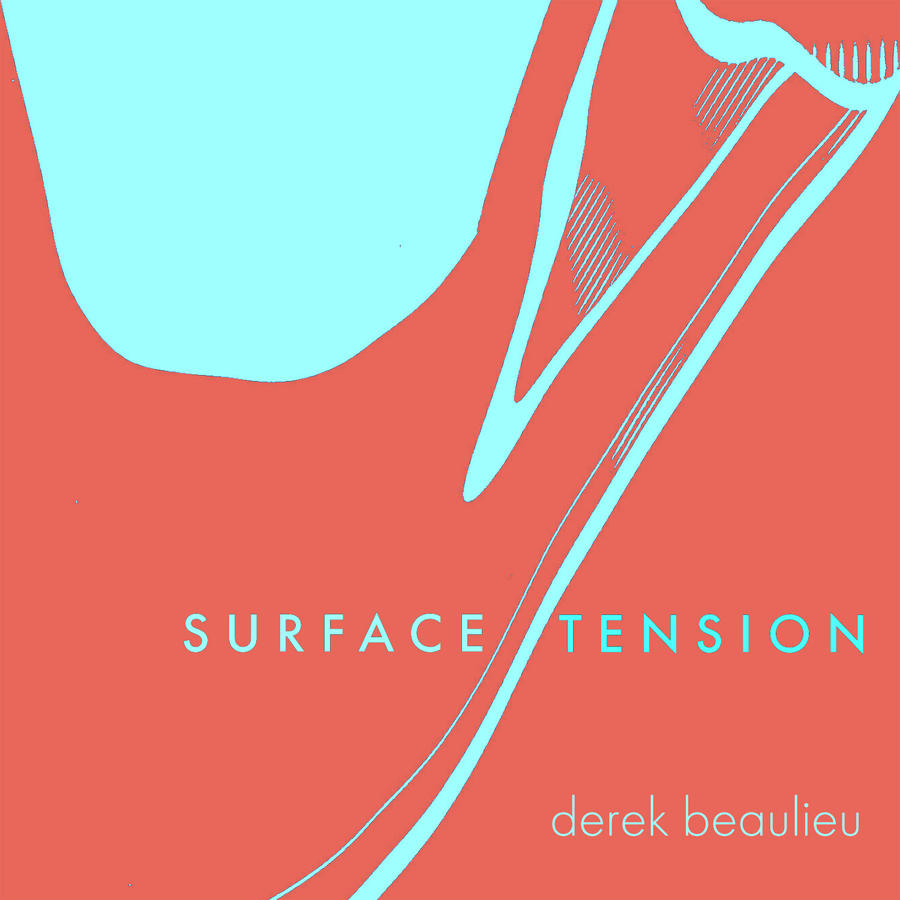Using a Xerox Workcentre 7845i and Letraset (a dry transferable lettering system circa 1959), Derek Beaulieu’s new collection Surface Tension propels typography into dance. Interspersed between the ten visual poems of Surface Tension, a manifesto gathered from across what Beaulieu, in the acknowledgements, calls “the Greek Chorus of the internet,” unfolds: “Just as logos continuously wash over us, let poetry do the same; part of the written landscape we occupy” (“Madge, You’re Soaking In It”). Symmetry matters. Beauty is on the menu. Font and kerning (the space between letters) thicken into rings of ancient trees. Dragons appear. Surface Tension leaves us awash in its monochromatic textual landscapes, lets us wander, wonder, again at poetry’s limitless boundaries (always a trick of the eye).

Even while it asks what can be gleaned from communal digital space (the Internet), Surface Tension implicitly suggests that the material world of text plus practically “vintage” technologies like the photocopier are also, still, fertile poetic spaces. Mallarmé advised that for an artist to attempt the creation of an ideal, total, artwork they must not only write, they must also dance.Beaulieu collapses the distinction.
The poems in this collection are mute, they are not to be read but to be looked at; their eloquence is dance. This is non-linguistic poetry… not quite asemic, but nearly. In poems such as “Ampersandance,” “Simple Symmetry” and “Page Break,” the initial symmetrical visual poem warps and spreads, increasingly, over several pages. The poems take flight, rendering their distinctive fonts unrecognizable. This literal manipulation of the poem—Beaulieu moves the page while xeroxing it—expresses what is rarely seen: the dynamism of the poet’s hands, the photocopier as stage. Visual poetry is the signifier’s kin (the body is more involved); traditional poetry is kin to the signified, the immaterial concept. They might not be separable, but they can whirl.
The signified appears, as it always does, because we are human, because we have friends. Ghosts hover above the poems in the dedications to Bob Cobbing, Jennifer Pike Cobbing, Lawrence Upton, and Jenni B. Baker (a dedication to our own, thankfully living, Canadian poet Gary Barwin is there also). Beaulieu’s poetry here is, in some ways, a response to friendship and loss as it activates the paradigm of these writers’ works. Poetry is not always just what you see on the page but is often invisibly set within the scaffolding of friendship and community, which goes on unendingly, even after loss.
In “Form is Never More than an Extension of Content,” Beaulieu writes, “Imagine a poetry that learns from the internet, learns from mass media, and starts to assume different forms of distribution: the website, the tweet, the post, the logo, the advertisement, the targeted ad.” Is this a Situationist call to arms? No. It proposes a world in which advertisements (to advertise means simply to “turn toward”) could turn us again and again toward poetry, instead, as if this turning were also a dance, had nothing to do with goods.
Beaulieu writes, “Poetry is not the beautiful expression of emotive truths; it is the archaeological rearrangement of the remains of an ancient civilization” (“Form is Never More than an Extension of Content”). So let us continue to rearrange. Surface Tension upholds reverb, sway, and slipstream. But its scaffolding is communal, propelled by the urgency of living in and among not in spite of, like an improvised piano piece folding a car alarm into its melody, reminding us, always, we must participate in the matter of poetry.
Bios
Sarah Burgoyne
Sarah Burgoyne is an experimental poet. Her second collection, Because the Sun, which thinks with and against Camus’ extensive notebooks and the iconic outlaw film Thelma & Louise, was published with Coach House Books in April 2021 and a finalist for the A.M. Klein Prize in Poetry. Her first collection Saint Twin (Mansfield: 2016) was also a finalist for the A.M. Klein Prize in Poetry (2016), awarded a prize from l’Académie de la vie littéraire (2017) and shortlisted for a Canadian ReLit Award.

